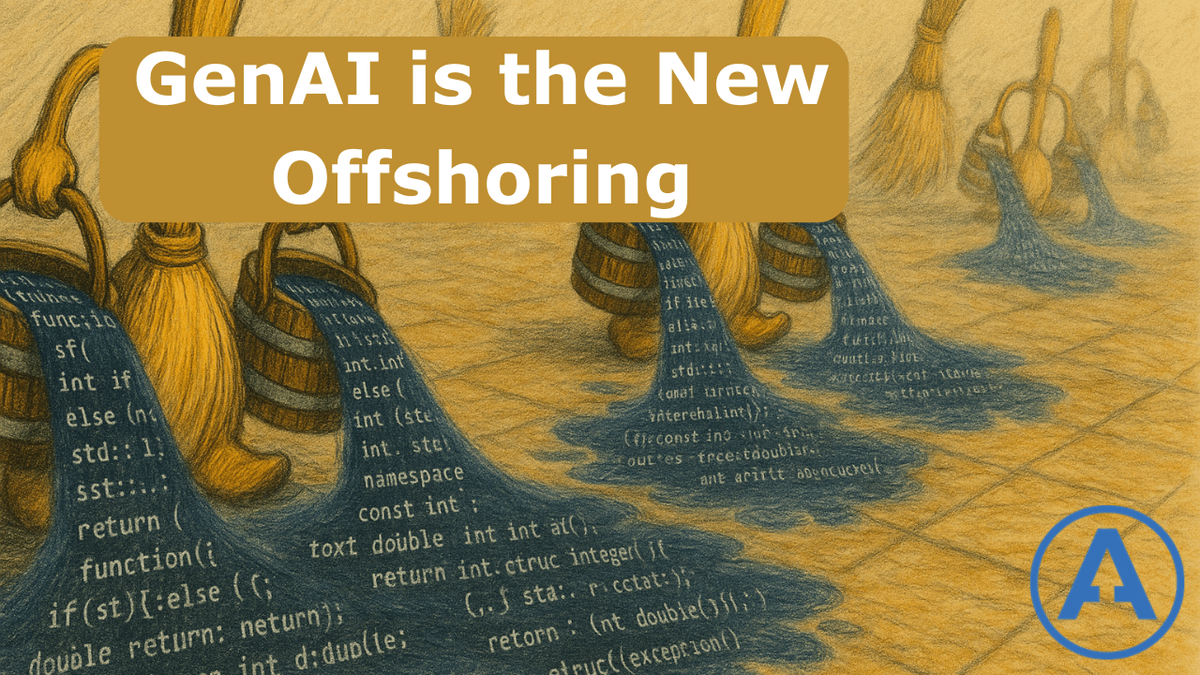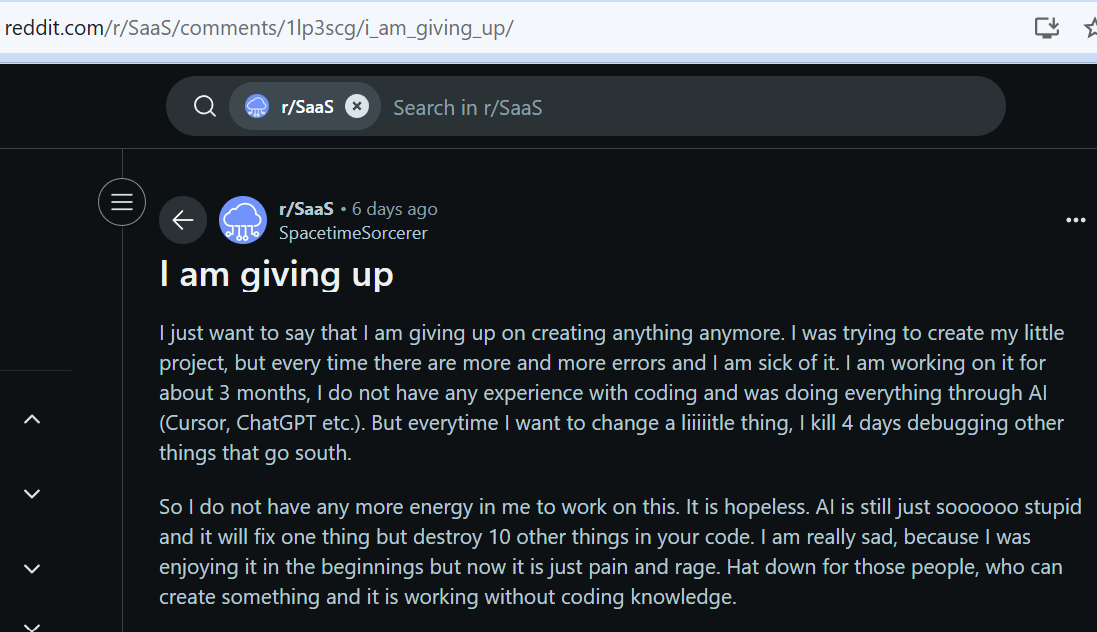GenAI is the new Offshoring
Date Published: 06 June 2025

I originally posted this on LinkedIn / BlueSky but I've found that it's nearly impossible to find (searching for "AI is the new offshoring" or "genAI is the new offshoring" both fail to find it) so I'm cross-posting here and adding a bit more context.
Twenty years ago, the internet and improved communications led to a massive push in US corporate enterprises to outsource IT and dev efforts to far less expensive offshore outfits staffed by eager but often inexperienced workers making pennies on the dollar compared to their US counterparts. Layoffs occurred in many orgs and whole departments moved offshore in some cases, and while there were success stories and many companies continue to leverage offshore talent, many (most in my experience but that's probably biased by the ones coming to my company for help) later regretted the decision.
You see, cheap offshore devs are often very productive at producing code in the short term, but if you review what they produce in many cases it's composed of lots of copy-pasted code everywhere. The result is a short run of high productivity that starts to slow down within 12-24 months and by the third year is a big ball of mud collapsing under its own weight and complexity.
Today, we have various AI and LLM tools capable of producing tons of code for pennies on the dollar compared to professional software engineers (from any country). Many companies are jumping on this bandwagon, blindly taking the output of these tools and building apps quickly from them, and I can't help but wonder if, in a few years, there won't be similar remorse and a whole lot of AI-created legacy code for folks like me to help companies recover from.
Remember, the source code for your apps is a thing you must maintain over time. If it's clean, well-organized, modular, then it's likely it will serve your needs for some time at a reasonable expense. But if it's a Big Ball of Mud of inscrutable generated Spaghetti Code, it's going to require massive effort even with AI assistance to modify in any meaningful manner.
GenAI and vibe coding are technical debt generators.
Is it possible to produce good working software using these tools? Yes, but it's the exception, not the rule. These tools are largely trained on public data sets, including tutorials, documentation, and student exercises. Most complex business software isn't publicly available. A lot of the code available publicly is intentionally dumbed down to keep it simple in order to make a specific point or teach a single concept. The sheer volume of this kind of code means GenAI tools will often default to these approaches, without considering what's missing.
Or, consider if real business code is available for training. How much of that code is what you would consider ideal quality, as opposed to technical-debt-ridden? To paraphrase George Carlin, "think about how bad the average code is, and then realize, half of it is worse than that." This is what GenAI is trained on and will produce - en masse - to fulfill whatever prompt you give it.
Remember Wirth's Law:
"Software is getting slower more rapidly than hardware becomes faster."
What we have today with AI is similar.
Generation of lousy software and technical debt is happening far more rapidly than tools to manage and improve such software are being developed.
It's going to be a bumpy ride for a few years.
Evidence for Technical Debt Issues with AI Generated Code
We're already seeing stories like this:

Mickey Mouse and the Sorcerer's Apprentice
The whole thing reminds me of The Sorcerer's Apprentice, where Mickey lazily decides to use his mentor's magical hat to enchant some brooms into fetching water for him. Before long, he's drowning in the huge amount of water they've brought, with no end in sight! Similarly, AI is capable of producing huge amounts of code in very short periods of time, and I predict many teams will be drowning in that code and its associated technical debt for years to come.

Category - Browse all categories

About Ardalis
Software Architect
Steve is an experienced software architect and trainer, focusing on code quality and Domain-Driven Design with .NET.
